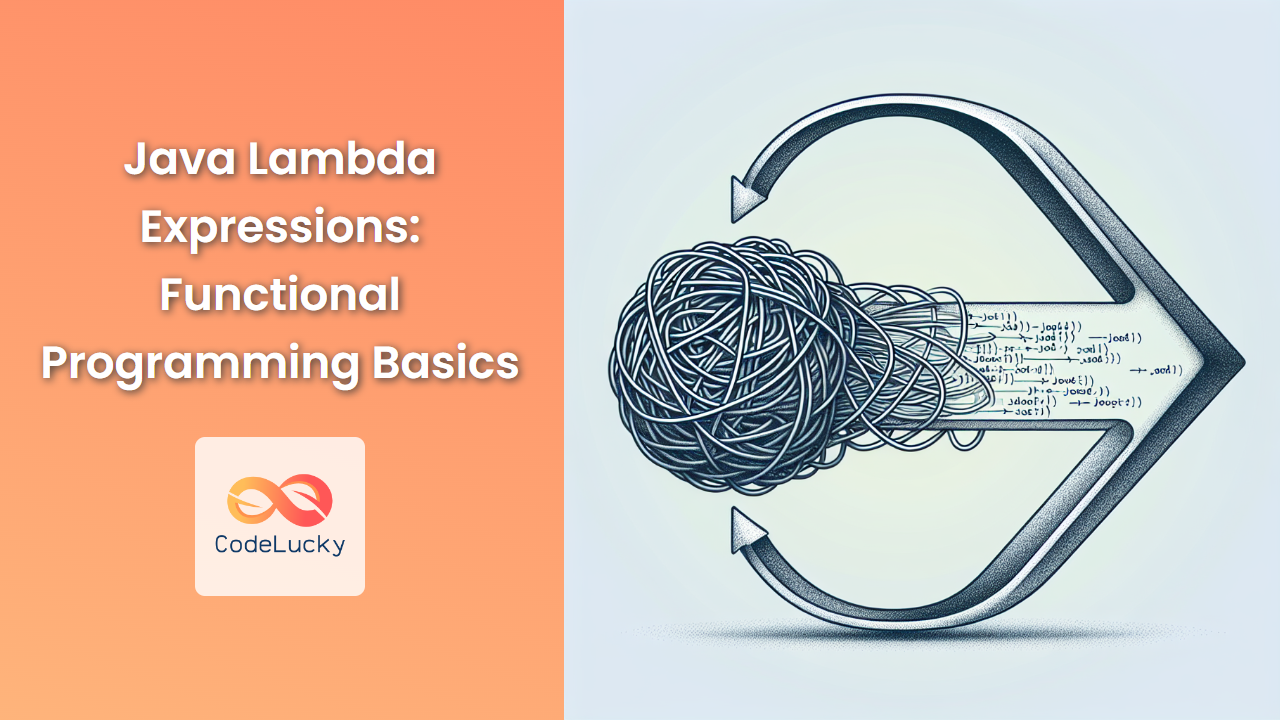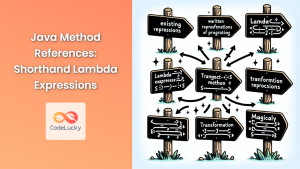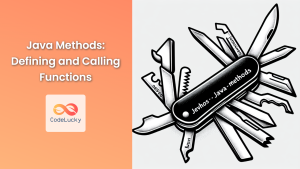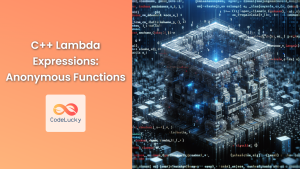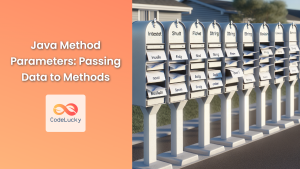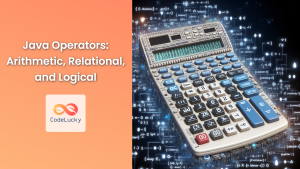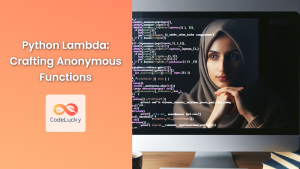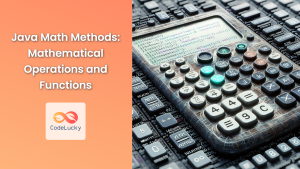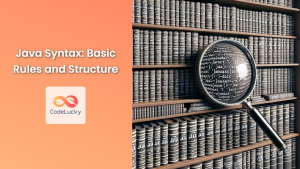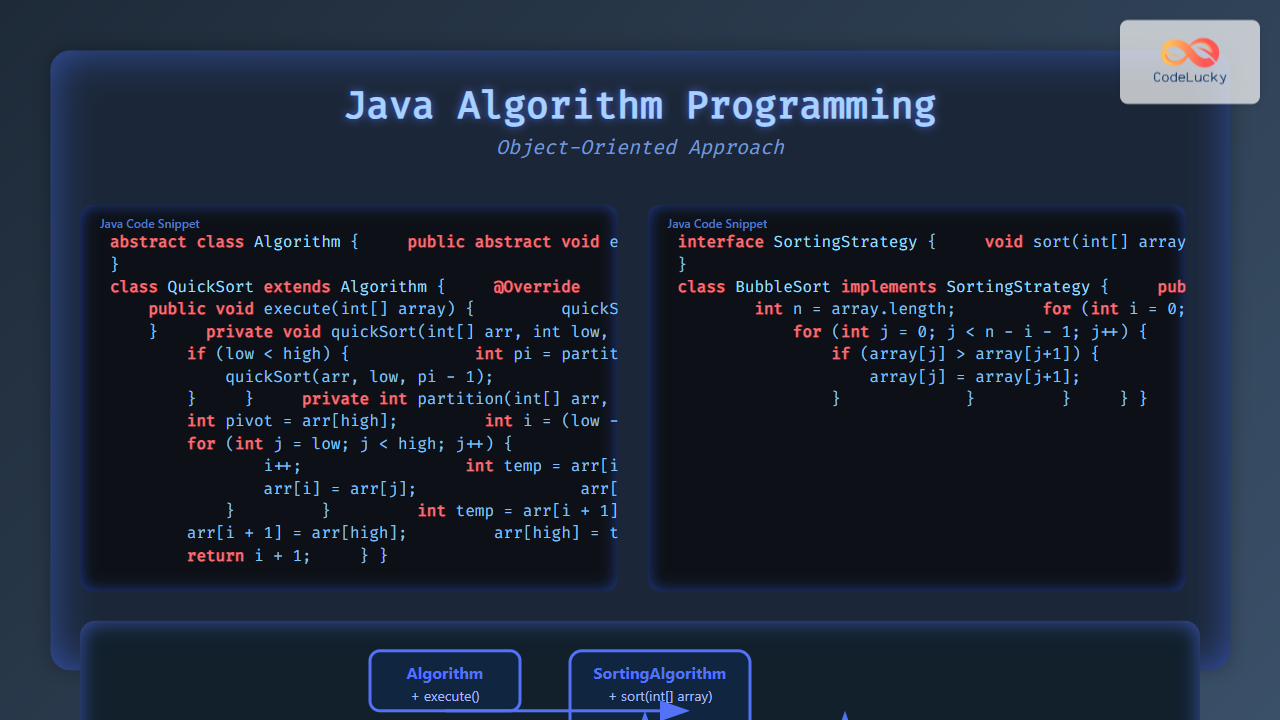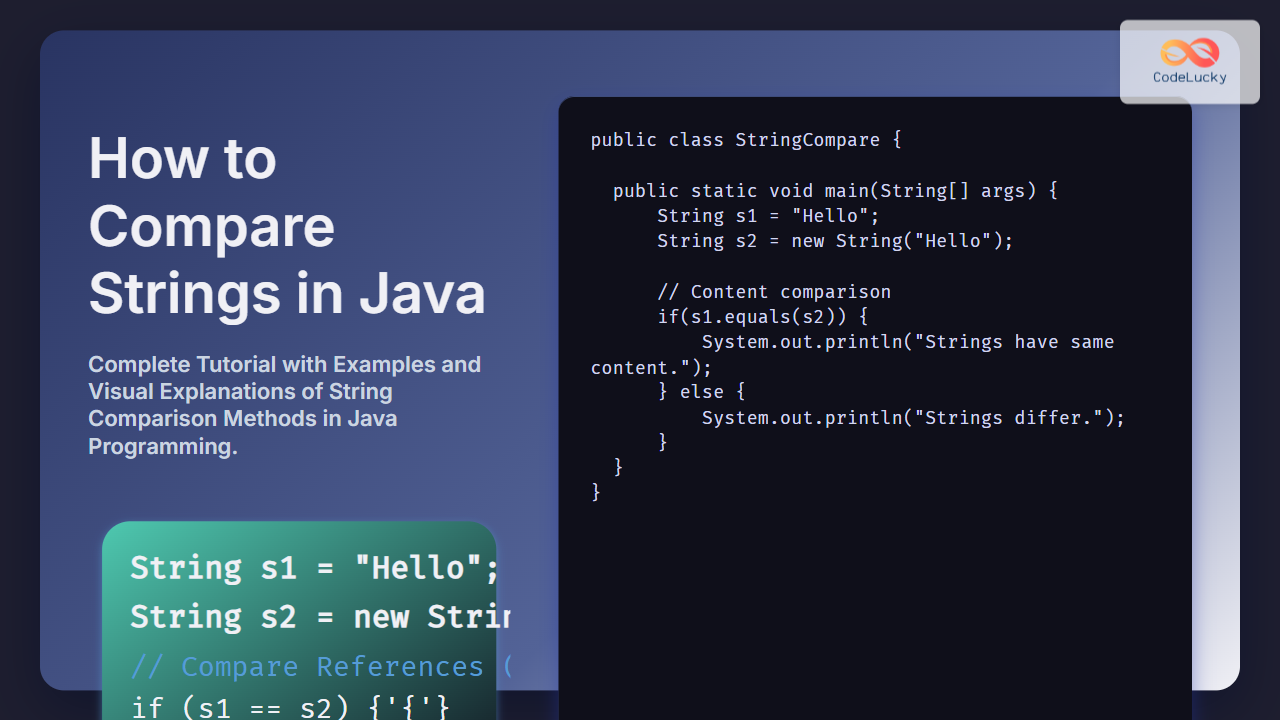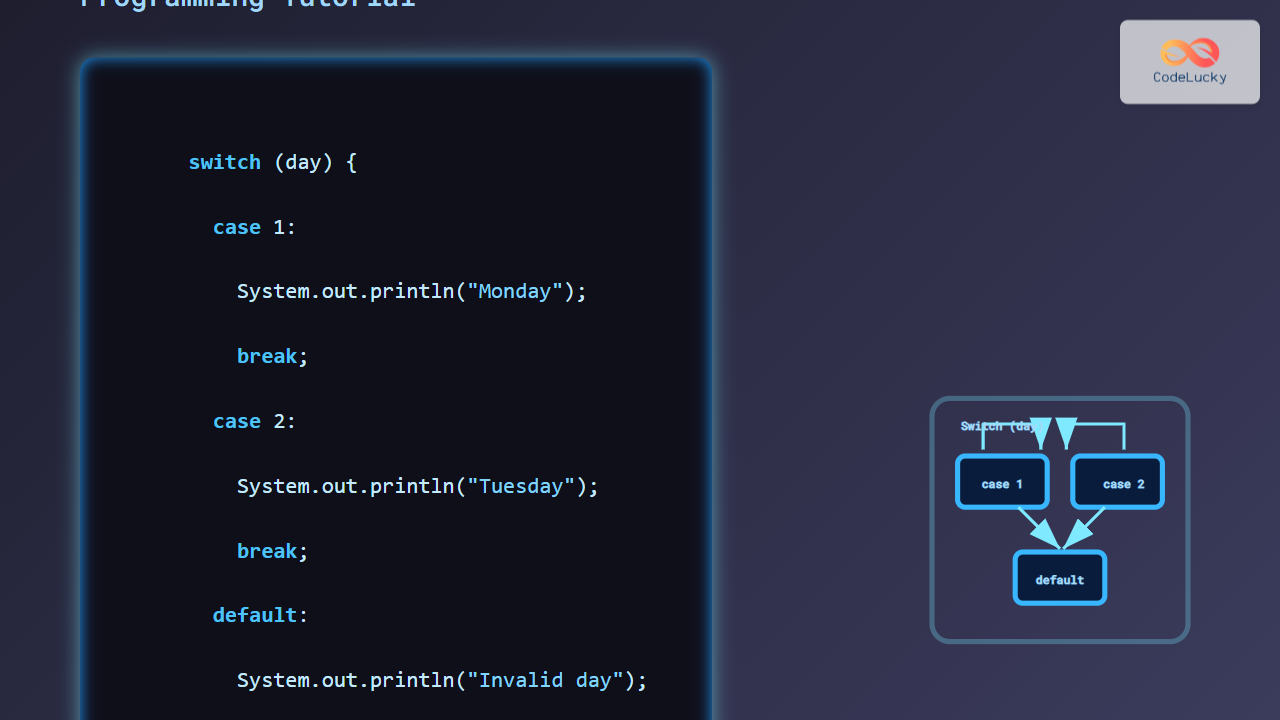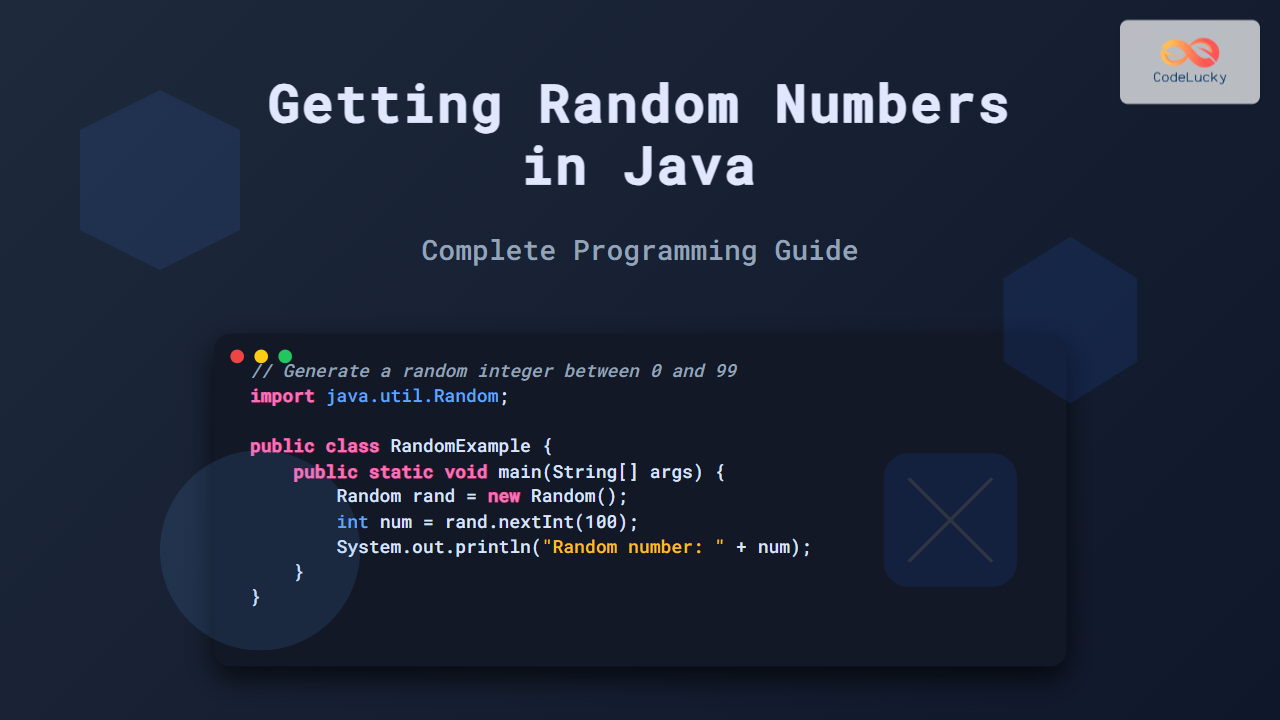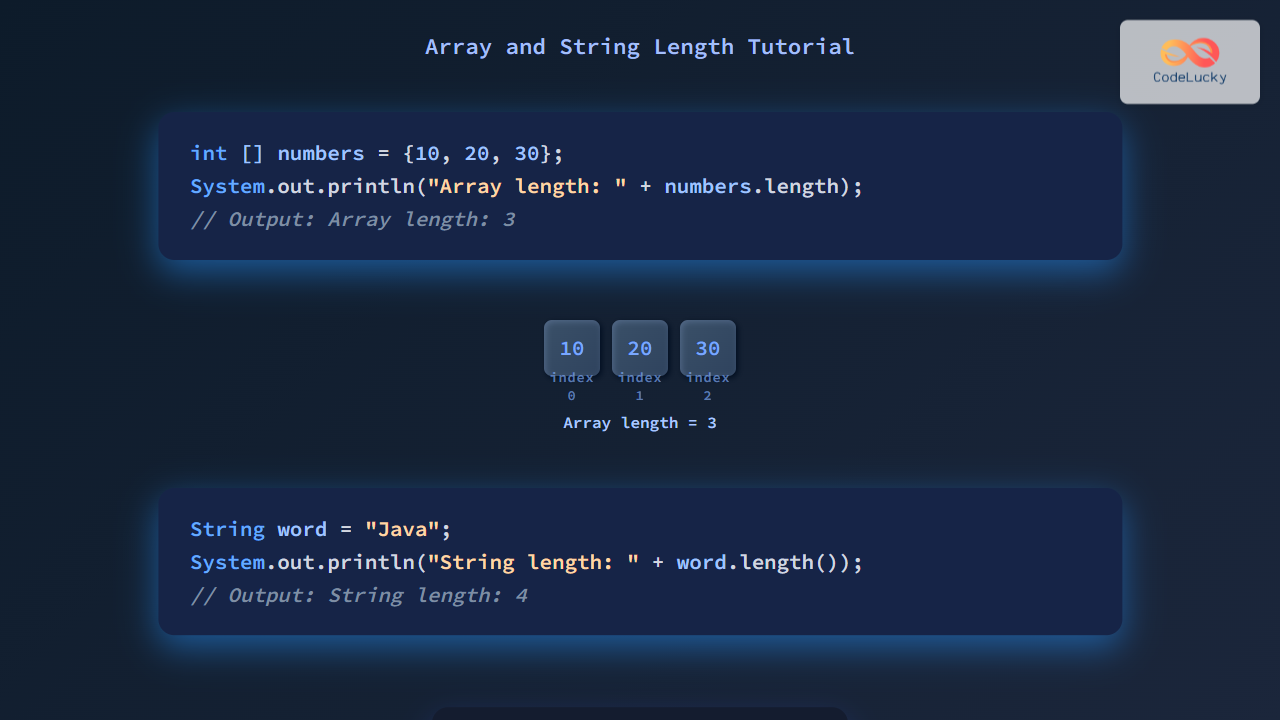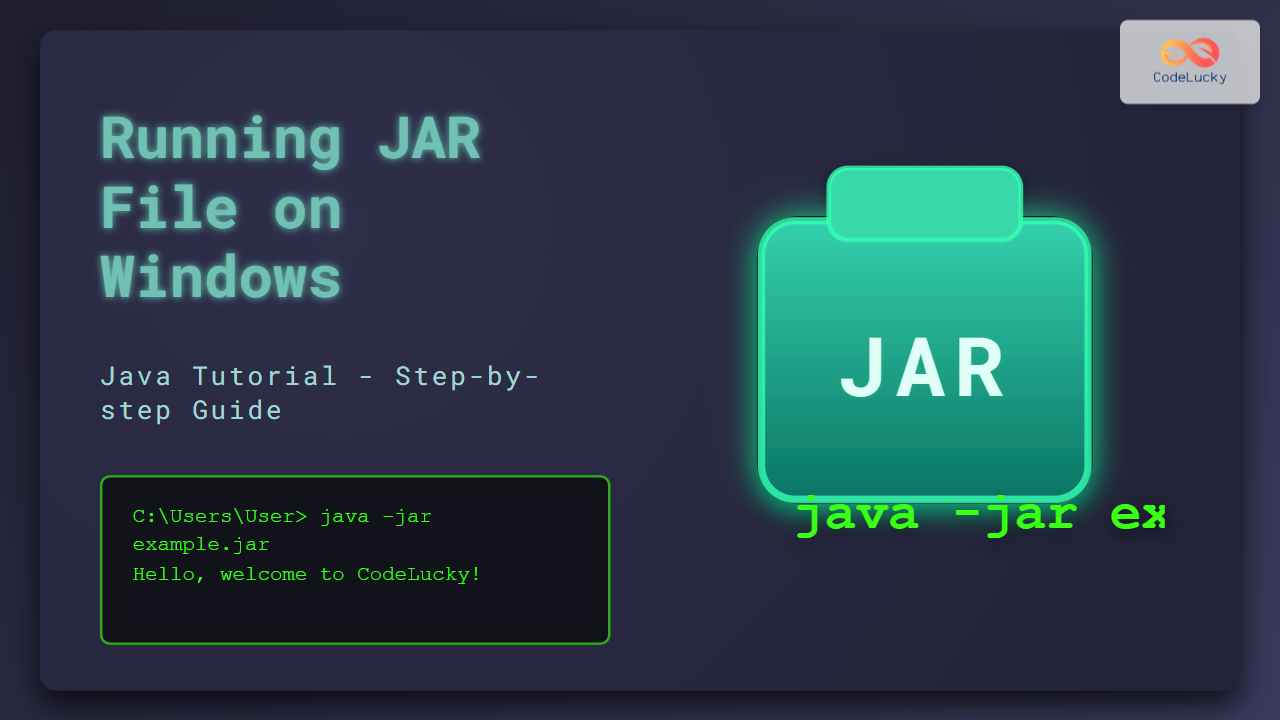Java 8 introduced a game-changing feature to the language: lambda expressions. These powerful constructs brought functional programming paradigms to Java, allowing developers to write more concise, expressive, and efficient code. In this comprehensive guide, we'll dive deep into the world of Java lambda expressions, exploring their syntax, use cases, and how they've revolutionized Java programming.
What Are Lambda Expressions?
Lambda expressions are anonymous functions that can be treated as objects. They allow you to write instances of single-method interfaces (functional interfaces) in a more compact and readable way.
🔑 Key Point: Lambda expressions provide a clear and concise way to represent one method interface using an expression.
The basic syntax of a lambda expression is:
(parameters) -> expression
or
(parameters) -> { statements; }
The Evolution: From Anonymous Classes to Lambdas
To truly appreciate lambda expressions, let's look at how we used to implement functional interfaces before Java 8:
// Traditional way using anonymous class
Runnable runnable = new Runnable() {
@Override
public void run() {
System.out.println("Hello from anonymous class!");
}
};
// Using lambda expression
Runnable lambdaRunnable = () -> System.out.println("Hello from lambda!");
As you can see, the lambda expression is much more concise and readable.
Functional Interfaces: The Foundation of Lambdas
Functional interfaces are the cornerstone of lambda expressions. These are interfaces that contain exactly one abstract method.
🔍 Fun Fact: Java provides the @FunctionalInterface annotation to mark interfaces as functional interfaces. While not mandatory, it's a good practice to use this annotation for clarity and compile-time checks.
Let's create our own functional interface:
@FunctionalInterface
interface MathOperation {
int operate(int a, int b);
}
public class Calculator {
public static void main(String[] args) {
// Addition using lambda
MathOperation addition = (a, b) -> a + b;
// Subtraction using lambda
MathOperation subtraction = (a, b) -> a - b;
System.out.println("10 + 5 = " + operate(10, 5, addition));
System.out.println("10 - 5 = " + operate(10, 5, subtraction));
}
private static int operate(int a, int b, MathOperation operation) {
return operation.operate(a, b);
}
}
Output:
10 + 5 = 15
10 - 5 = 5
In this example, we've created a MathOperation functional interface and implemented it using lambda expressions for addition and subtraction.
Lambda Expression Syntax Variations
Lambda expressions can take various forms depending on the number of parameters and the complexity of the operation:
-
No parameters:
() -> System.out.println("Hello, World!") -
One parameter:
name -> System.out.println("Hello, " + name) -
Multiple parameters:
(x, y) -> x + y -
Explicit parameter types:
(String s) -> s.length() -
Multiple statements:
(x, y) -> { int sum = x + y; return sum; }
Leveraging Built-in Functional Interfaces
Java provides several built-in functional interfaces in the java.util.function package. Let's explore some of the most commonly used ones:
1. Predicate
The Predicate<T> interface is used for boolean-valued functions of one argument.
import java.util.Arrays;
import java.util.List;
import java.util.function.Predicate;
public class PredicateExample {
public static void main(String[] args) {
List<String> names = Arrays.asList("John", "Jane", "Jack", "Joe");
// Predicate to check if a name starts with 'J'
Predicate<String> startsWithJ = name -> name.startsWith("J");
// Filter and print names starting with 'J'
names.stream()
.filter(startsWithJ)
.forEach(System.out::println);
}
}
Output:
John
Jane
Jack
Joe
2. Function
The Function<T, R> interface represents a function that accepts one argument and produces a result.
import java.util.Arrays;
import java.util.List;
import java.util.function.Function;
public class FunctionExample {
public static void main(String[] args) {
List<String> names = Arrays.asList("John", "Jane", "Jack", "Joe");
// Function to get the length of a string
Function<String, Integer> nameLength = String::length;
// Apply the function and print results
names.stream()
.map(nameLength)
.forEach(System.out::println);
}
}
Output:
4
4
4
3
3. Consumer
The Consumer<T> interface represents an operation that accepts a single input argument and returns no result.
import java.util.Arrays;
import java.util.List;
import java.util.function.Consumer;
public class ConsumerExample {
public static void main(String[] args) {
List<String> names = Arrays.asList("John", "Jane", "Jack", "Joe");
// Consumer to print a greeting
Consumer<String> printGreeting = name -> System.out.println("Hello, " + name + "!");
// Apply the consumer to each name
names.forEach(printGreeting);
}
}
Output:
Hello, John!
Hello, Jane!
Hello, Jack!
Hello, Joe!
Method References: Shorthand for Lambdas
Method references provide a way to refer to methods or constructors without invoking them. They can be seen as shorthand notation for certain lambda expressions.
There are four kinds of method references:
- Reference to a static method:
ContainingClass::staticMethodName - Reference to an instance method of a particular object:
containingObject::instanceMethodName - Reference to an instance method of an arbitrary object of a particular type:
ContainingType::methodName - Reference to a constructor:
ClassName::new
Let's see some examples:
import java.util.Arrays;
import java.util.List;
public class MethodReferenceExample {
public static void main(String[] args) {
List<String> names = Arrays.asList("John", "Jane", "Jack", "Joe");
// Static method reference
names.forEach(System.out::println);
// Instance method reference of a particular object
StringBuilder sb = new StringBuilder();
names.forEach(sb::append);
System.out.println("Appended names: " + sb.toString());
// Instance method reference of an arbitrary object of a particular type
names.sort(String::compareToIgnoreCase);
System.out.println("Sorted names: " + names);
// Constructor reference
List<Thread> threads = names.stream()
.map(Thread::new)
.toList();
threads.forEach(Thread::start);
}
}
Output:
John
Jane
Jack
Joe
Appended names: JohnJaneJackJoe
Sorted names: [Jack, Jane, Joe, John]
Capturing Variables in Lambda Expressions
Lambda expressions can capture variables from their enclosing scope. However, these variables must be effectively final (either explicitly declared as final or never modified after initialization).
public class VariableCaptureExample {
public static void main(String[] args) {
String prefix = "Number: ";
List<Integer> numbers = Arrays.asList(1, 2, 3, 4, 5);
numbers.forEach(n -> System.out.println(prefix + n));
// This would cause a compilation error:
// prefix = "Value: ";
}
}
Output:
Number: 1
Number: 2
Number: 3
Number: 4
Number: 5
🚫 Important: If you try to modify the prefix variable after using it in the lambda, you'll get a compilation error.
Lambda Expressions and Exception Handling
When working with lambda expressions that may throw exceptions, you need to handle them appropriately. Here's an example of how to deal with checked exceptions in lambdas:
import java.io.IOException;
import java.util.Arrays;
import java.util.List;
public class LambdaExceptionHandling {
@FunctionalInterface
interface ThrowingConsumer<T> {
void accept(T t) throws IOException;
}
static <T> Consumer<T> handlingConsumer(ThrowingConsumer<T> consumer) {
return i -> {
try {
consumer.accept(i);
} catch (IOException e) {
throw new RuntimeException(e);
}
};
}
public static void main(String[] args) {
List<String> files = Arrays.asList("file1.txt", "file2.txt", "file3.txt");
files.forEach(handlingConsumer(file -> {
// Simulating file processing that might throw IOException
if (file.equals("file2.txt")) {
throw new IOException("Error processing " + file);
}
System.out.println("Processing: " + file);
}));
}
}
Output:
Processing: file1.txt
Exception in thread "main" java.lang.RuntimeException: java.io.IOException: Error processing file2.txt
at LambdaExceptionHandling...
In this example, we've created a ThrowingConsumer interface and a handlingConsumer method to wrap our lambda and handle the checked IOException.
Performance Considerations
While lambda expressions can make your code more readable and concise, it's important to consider their performance implications:
-
Memory usage: Lambda expressions are implemented using invokedynamic bytecode instructions, which can lead to increased memory usage compared to traditional anonymous classes.
-
Startup time: The first invocation of a lambda expression might be slower due to the initialization of the invokedynamic call site.
-
JIT optimization: The JIT compiler can often optimize lambda expressions effectively, sometimes even better than equivalent anonymous classes.
🏋️ Pro Tip: For performance-critical applications, always benchmark your code to determine whether lambda expressions or traditional approaches work best in your specific use case.
Best Practices for Using Lambda Expressions
To make the most of lambda expressions in your Java code, consider these best practices:
-
Keep it simple: Lambda expressions shine when they're short and to the point. If your lambda becomes complex, consider refactoring it into a named method.
-
Use type inference: Let the compiler infer parameter types when possible to keep your lambdas concise.
-
Leverage method references: When a lambda is simply calling another method, use a method reference instead.
-
Be mindful of variable capture: Remember that captured variables must be effectively final.
-
Use built-in functional interfaces: Whenever possible, use the standard functional interfaces provided in
java.util.functionrather than creating your own. -
Consider readability: While lambdas can make code more concise, ensure that your code remains readable and understandable to other developers.
Conclusion
Lambda expressions have brought a new level of expressiveness and functionality to Java programming. By embracing functional programming concepts, Java developers can now write more concise, readable, and efficient code. From simplifying the implementation of functional interfaces to enabling powerful stream operations, lambda expressions have become an indispensable tool in the modern Java developer's toolkit.
As you continue to work with Java, make it a point to look for opportunities to use lambda expressions. Practice refactoring existing code to use lambdas and functional interfaces. Remember, the goal is not just to make your code shorter, but to make it more expressive and easier to understand.
By mastering lambda expressions, you'll be well-equipped to write Java code that is both powerful and elegant. Happy coding! 🚀👨💻👩💻
- What Are Lambda Expressions?
- The Evolution: From Anonymous Classes to Lambdas
- Functional Interfaces: The Foundation of Lambdas
- Lambda Expression Syntax Variations
- Leveraging Built-in Functional Interfaces
- Method References: Shorthand for Lambdas
- Capturing Variables in Lambda Expressions
- Lambda Expressions and Exception Handling
- Performance Considerations
- Best Practices for Using Lambda Expressions
- Conclusion

